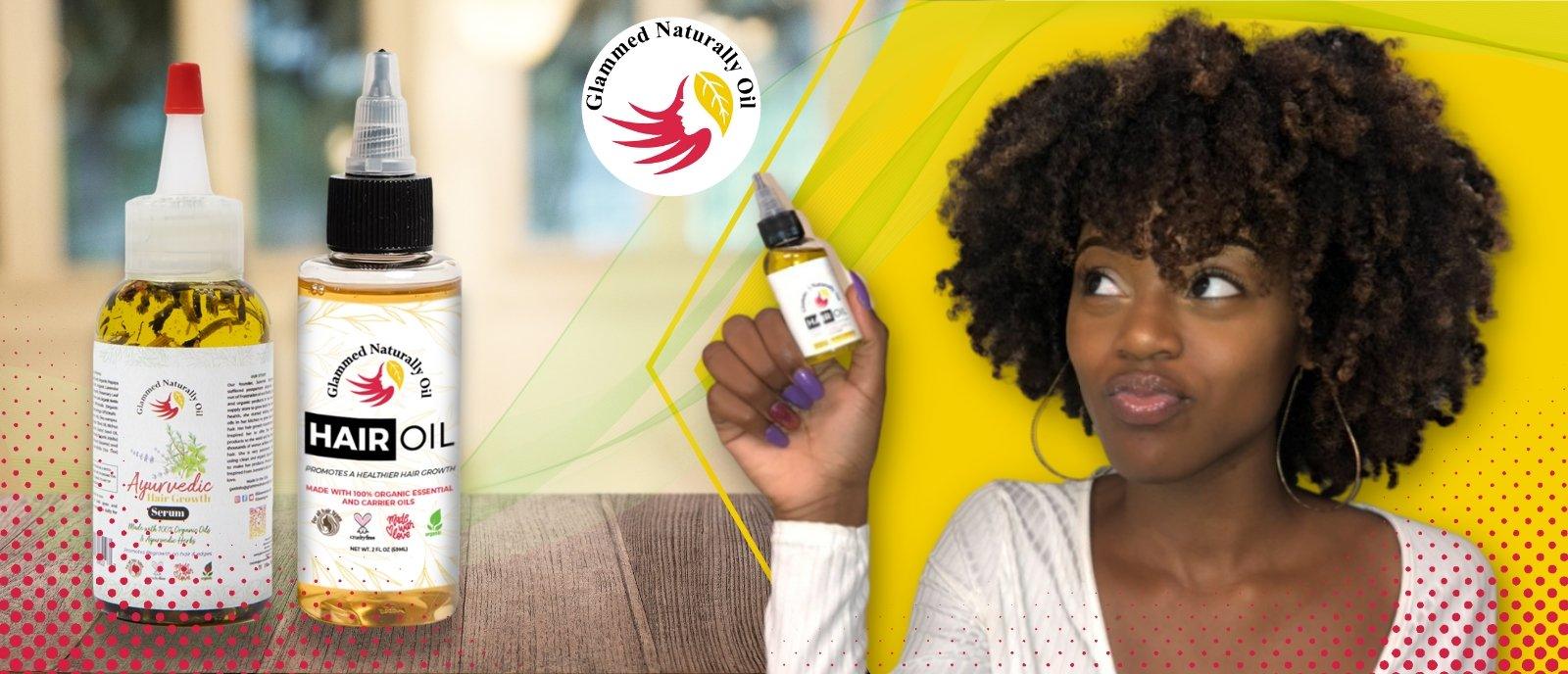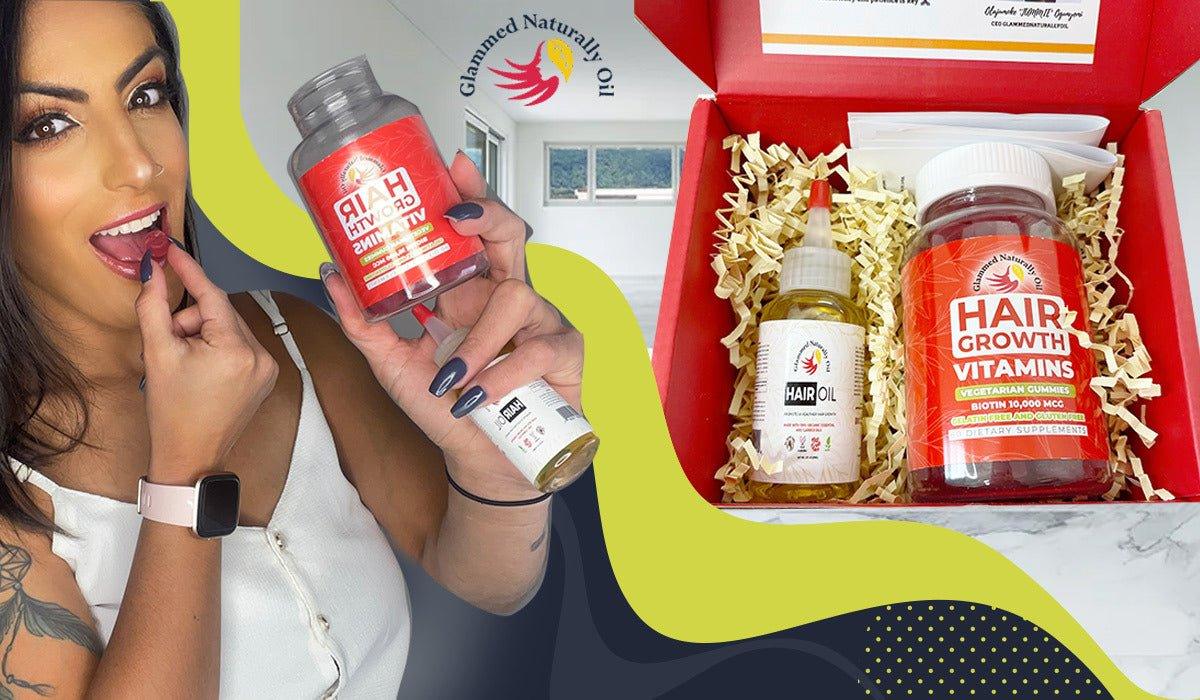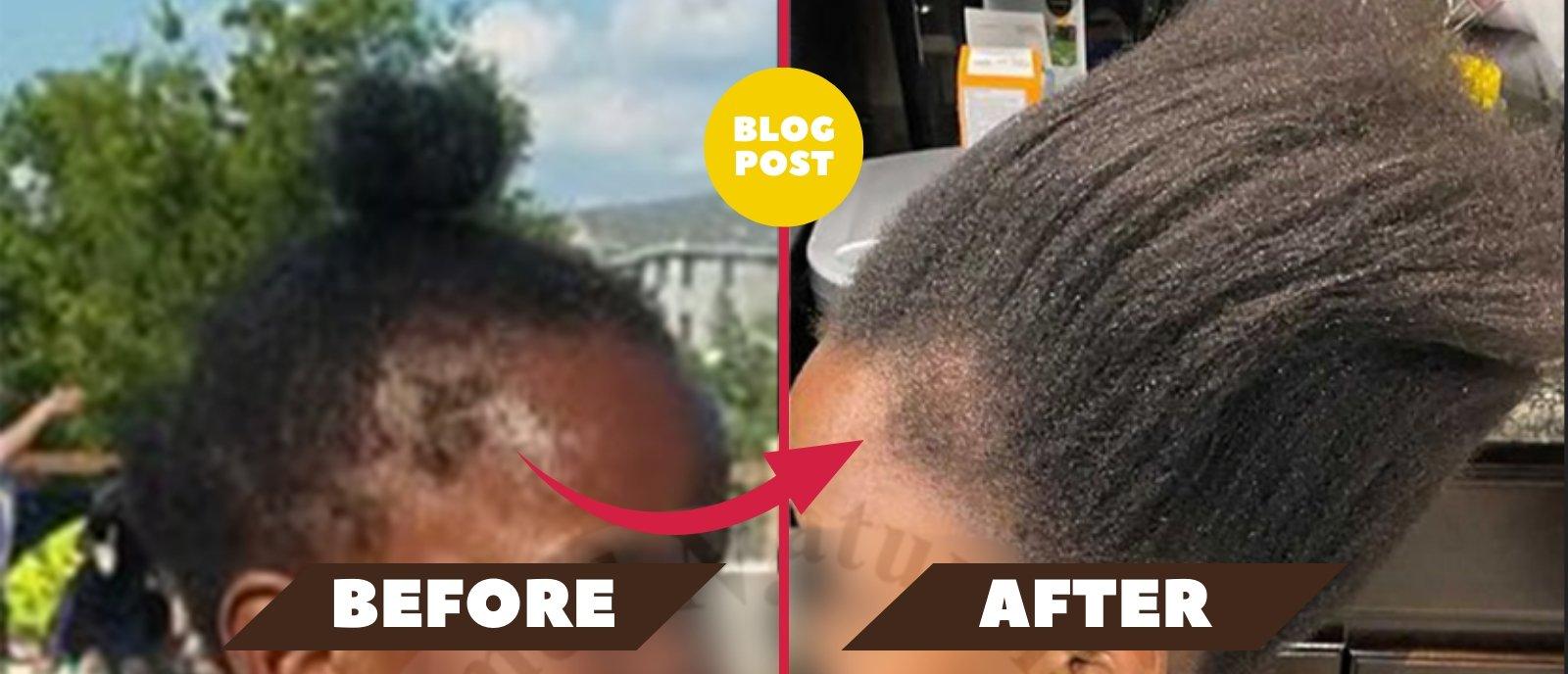
Sealing and Oiling Your Natural Hair
Depending on hair’s porosity, sealing in moisture can be crucial if you want to prevent dry hair. Hair that has high porosity is more prone to dryness, since this type of hair doesn’t seem to retain moisture for long periods of time. Dry weather conditions can also cause dryness to the hair and sealing in moisture may help keep the hair moisturized longer in this type of climate.
Sealing is the simple act of trapping the moisture in your hair when it’s simply wet or after you have applied a product that has as its first ingredient H2O (water). Sealing can be achieved by applying a serum or oil in your hair. You should check our our best seller, Glammednaturallyoil Hair Growth Oil and Braid Oil
Difference Between Moisturizing And Sealing Oil
As a natural, you probably already know that moisture is the KEY to reducing breakage of your natural tresses. Natural oils have the ability to nourish your royal crown with lasting results that rival any of your favorite hair creams and lotions. Remember Moisturizing Oils PENETRATE the hair shaft to moisturize the hair.
Unlike moisturizing oils, “Sealing Oils” aren’t able to penetrate the hair shaft. This is why they are better for sealing in moisture versus providing it. Keep in mind however that sealing oils are so good at keeping moisture in and that they’re also very good at keeping moisture out. So it's important to make sure your hair is properly moisturized prior to using.
Moisturizing Oils vs Sealing Oil
Moisturizing Oils:
- Penetrates hair shaft
- Moisturized hair
- Soften and make your hair manageable
Sealing Oils:
- Does not penetrate hair shaft
- Seals and lock in moisture
- Acts as protective coat to your strands
- Makes your hair shiny
Kinds of Moisturizing And Sealing Oil And Its Benefits
Moisturizing Oils
- Coconut Oil: We previously wrote a hymn to this miracle cure. This oil actually falls just a bit between the moisturizing and sealing oils: it does have the ability to penetrate the hair, but only in a limited amount. As a result, most of the oil remains on your hair. Good to know that it is better not to use coconut oil if your hair is protein sensitive.
- Sunflower oil: an oil that most do have in their pantry. This oil is very suitable as a cheap alternative to coconut oil if your curls are not good at protein.
- Palm kernel oil: not to be confused with palm oil! Palm kernel oil is made from the seeds of the palm fruit, contains many antioxidants, works well as a deep conditioner and has a light texture. That combination makes it very suitable for Curlies who are looking for naturally curly hair
- Babassu oil: from a Brazilian palm tree and often compared to coconut oil. Babassu oil is lighter compared to coconut oil and feels less heavy, greasy and oily.
Sealing Oil
- (Jamaican black) castor oil: (not suitable if you are protein sensitive) castor oil is also known as a miracle cure. Not only the effect of this oil is miraculous, but also because the oil is extracted from the miracle tree. This oil has a thick, viscous substance and therefore stays on the hair faster: it seals your hair.
- Grape seed oil: This oil is pressed from grape seed and is known as a very light oil. Grape seed oil is therefore very suitable for women (and men) with thinner hair who want to seal in hydration, without the dots feeling heavy or greasy. Another nice advantage: grape seed oil is fairly cheap!
- Jojoba Oil: Like grape seed oil, jojoba oil is light, suitable for fine or thin hair with low porosity . It is again a bit more expensive than most oils. But, you do get something in return: not only a sealing oil, but also a good remedy for a dry or scaly scalp. It helps restore the pH of your scalp.
- Rice Oil: Rice oil is pressed from rice bran and is perfect for those with fine hair. Further additional advantage: it is not expensive.
- Almond oil: sealer that, unlike most sealers, is also good for your scalp: very suitable if you have a dry or irritated scalp. In addition, almond contains magnesium and is therefore also a good agent against hair loss.



Leave a comment
This site is protected by hCaptcha and the hCaptcha Privacy Policy and Terms of Service apply.